New Habits for Customers: 3 Brands that Have Perfected the Daily Ritual
Published on February 13, 2017/Last edited on February 13, 2017/5 min read


Team Braze
It’s no secret that retaining new users isn’t easy. If your brand can’t find ways to get new customers to log sessions in your app, regularly visit your website, or sign up for your email list, the chances are low that they keep engaging consistently with your brand. But how prepared are you to make that kind of consistent engagement happen?
Starting things off on the right foot matters. The positive take: consistent engagement from the get go results in 90% retention after one month. And if nurturing newly acquired customers isn’t prioritized? The stakes are high: 75% of new app users do not return the day after the first use. In other words, there’s a limited window of time to make an impression on customers and get that daily ritual to stick.
To help out, we’re going to take a look at some mobile apps, email marketers, and innovative brands that have perfected the art of getting customers to set daily habits. Read on to see what we’ve learned from theSkimm, Poncho, and Google Know about how to get customers to set—and maintain—these kinds of routines using email marketing, push notifications, and more!
1. theSkimm
Sending too much outreach to your customers can be a big turnoff. But while more brands need to be careful not to overdo it with their messaging, things are a little different for news brands: the emails and other outreach that these brands send are meant to be a daily facet of their reader’s lives. And while there are many news-focused brands competing for eyeballs, theSkimm is a standout that sets the bar (high) with its easily digested news updates via email, mobile push, and in-app messaging.
So what’s the theSkimm on why the theSkimm’s mobile marketing strategy works? Setting a good habit, like reading the news, shouldn’t feel like a chore. It should be easy and fun, a bright part of the day that app users and email subscribers can look forward to. And theSkimm delivers that experience in smart ways, making its content available and optimized across different devices and engagement channels.

Here theSkimm uses in-app messaging to promote sign ups for its daily email newsletter. This message is simple, funny, and sets the tone for what theSkimm is all about: waking up together, smarter.

TheSkimm, which built its brand around smart email marketing, is a perfect example of what we’re always saying: Email is not dead. To succeed in this often underappreciated messaging category, theSkimm sends messages that all but exemplify today’s email marketing best practices:
- Be funny (when possible)
- Prioritize being helpful and adding value over selling to your readers
- Have a clear focus
- Make your readers feel like part of a community
- Keep an eye on your message length
- Make sure your email layout is clean and reader-friendly
- Use images in eye-catching ways
- If you’re going to include links, support deep linking
By providing real value in a memorable, engaging, and inclusive way (and providing the kind of smooth user experience that keeps readers focused on the content of their messages), theSkimm has made their daily email newsletter an institution—and set the stage for long-term success.
2. Poncho
Getting a weather forecast may not sound particularly innovative or trendy. But with its personalized (more on that later), cute, and memorable weather updates delivered via text, mobile app messaging, Kik integration, email, Slack integration and more, Poncho’s new take on an old classic—powered by an A-game multichannel, multi-platform marketing strategy—gives it staying power.
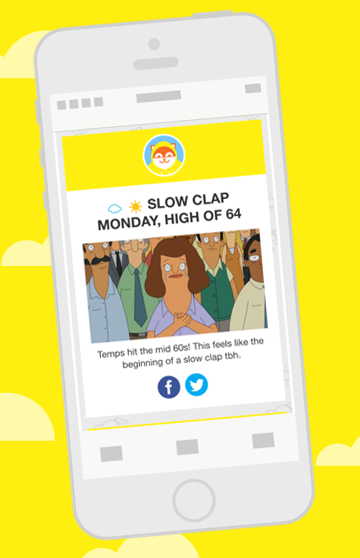


This Poncho weather app is actually so cute 🐱☔️ pic.twitter.com/w6JbD1fASe
— Kari Stokes (@karialexis_) January 23, 2017
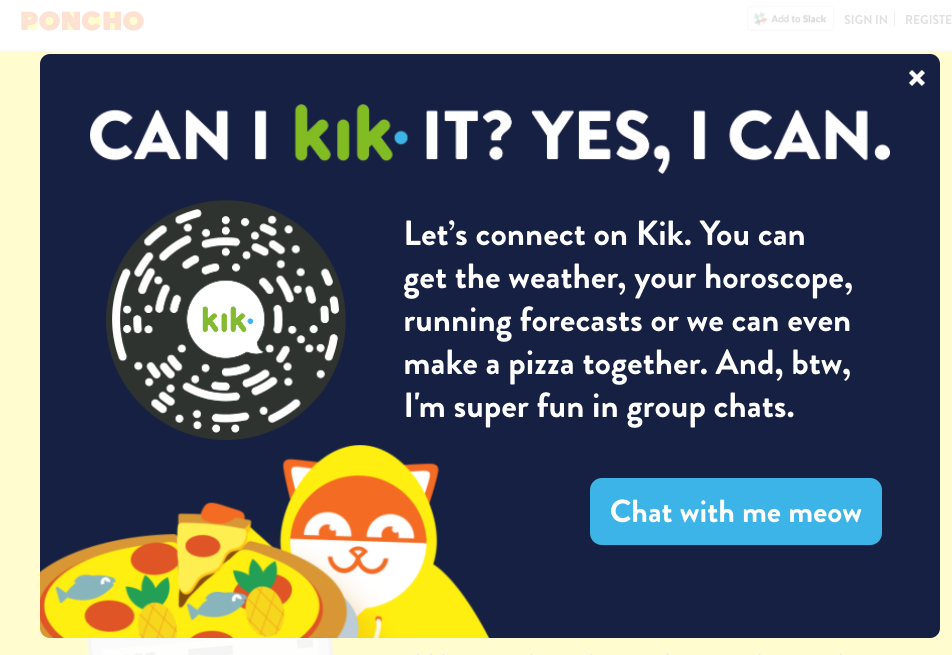

What started off as a daily humorous text message- and email-based campaign with a powerhouse personality—anyone who can pull off both Slow Clap Monday and Beyonce As an Adjective as headlines has our applause—has evolved to a platform-agnostic (or platform superstar) personalized weather forecast brand (plus alarm clock) that plays nicely with Android, iOS, and popular third-party messaging services like Slack and Kik.
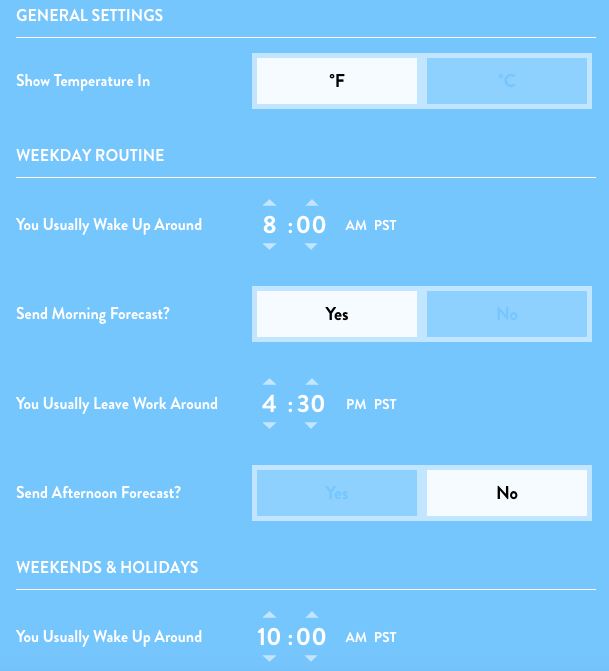
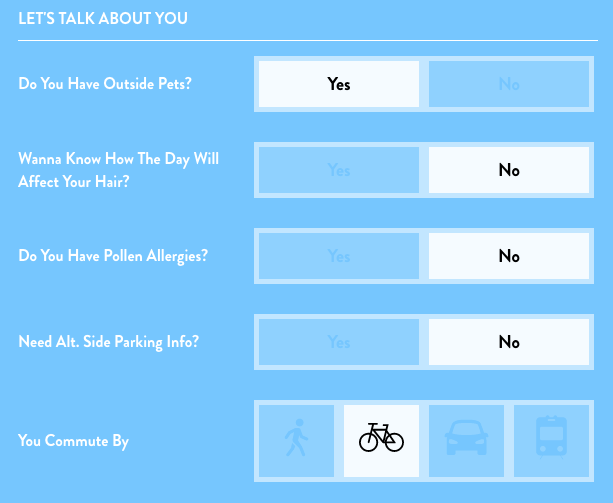
When it comes to personalization (we promised we’d return to this topic), traditional weather apps ask for your location data and that’s often where they stop. Poncho takes attention to detail to another level by using its preference center to get to know customers in all the ways that might impact how they care about weather. The means understanding when (and how) they usually commute, whether they have seasonal allergies, and more. So, real talk, have you thought about all the details you might want to understand about your customers to better meet their needs and communicate with them?
3. Google Now
We’ve been talking a lot about how digital assistants like Alexa are poised to be the next big thing in marketing, but Google Now has already quietly been doing the work of making daily life easier and more connected. By tapping into customer interactions with other Google apps, including Gmail, Google Maps, and Google Chrome browsing, Google Now’s push notifications and News Feed Card updates may know customers so well they could border on creepy—but because of their relevance and usefulness, they’re not likely to be overlooked.
Unlike other apps that may tell customers the “what” (what the weather is, what traffic is like, what is newsworthy), Google Now gives its users the contextualized “what this means.” That means being able to tell users that tomorrow will be warmer than today, or that it’s time to leave now because of a new traffic situation, or that there are news updates based on topics a users have already indicated they care about.
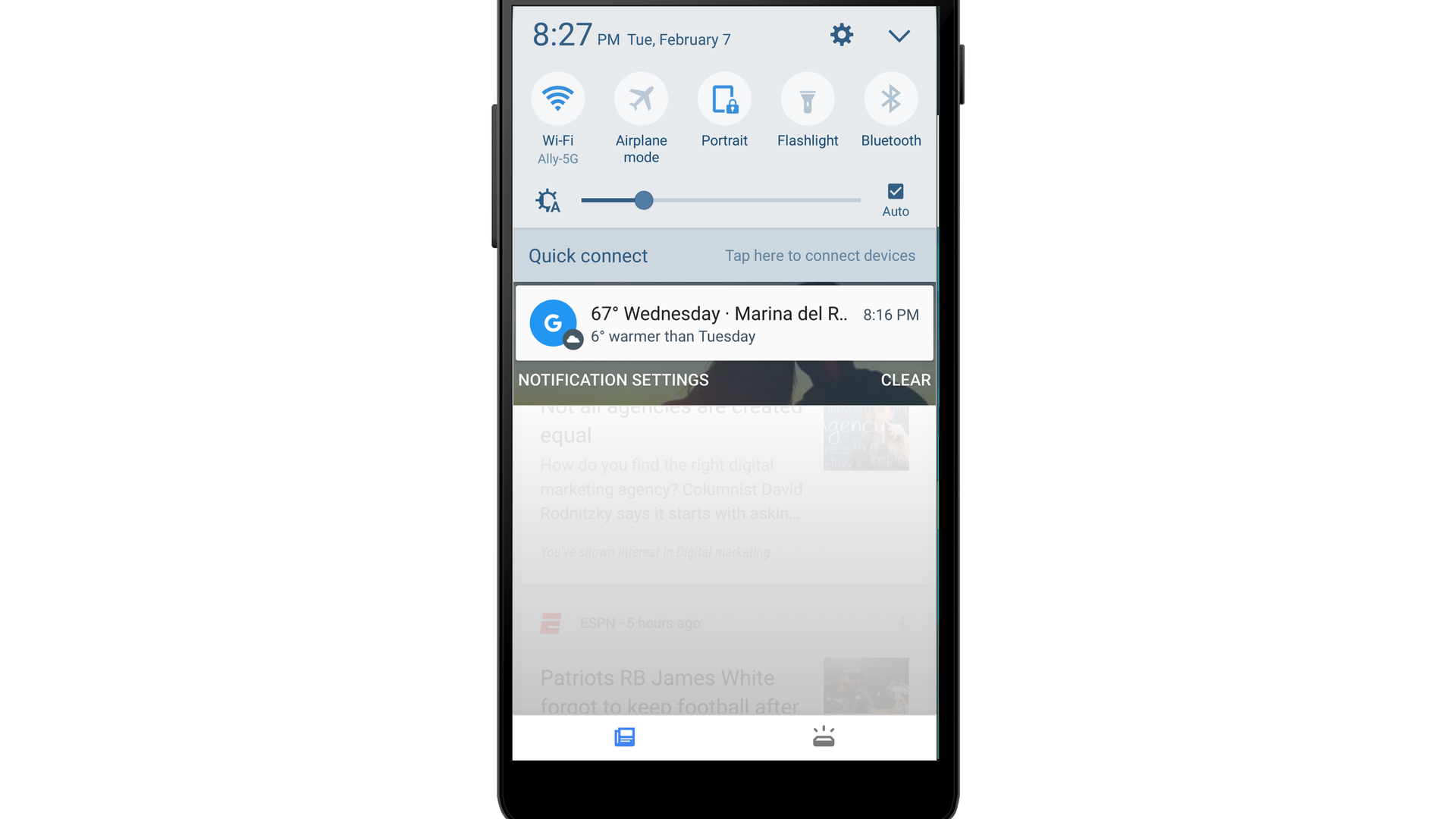
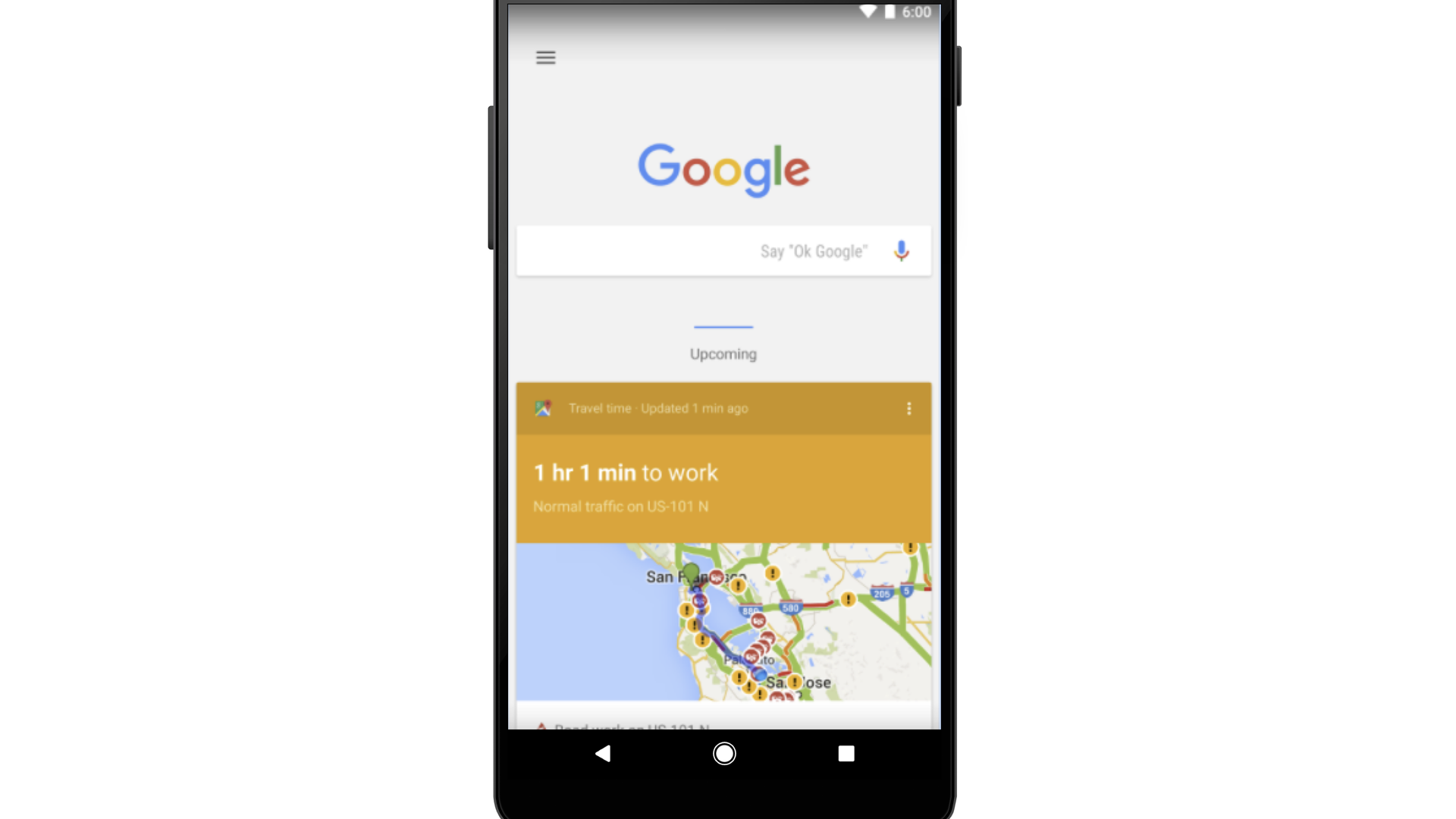
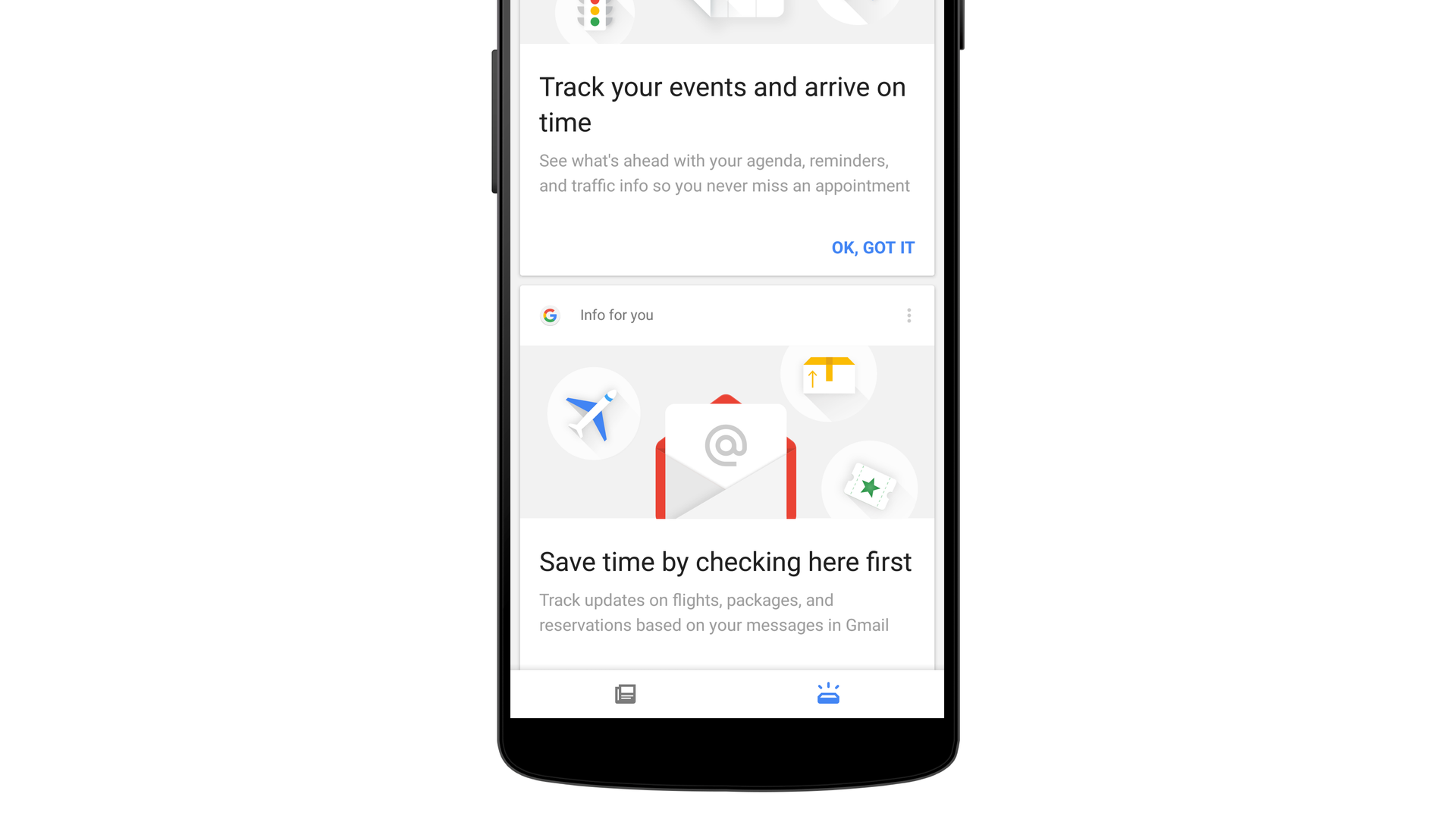
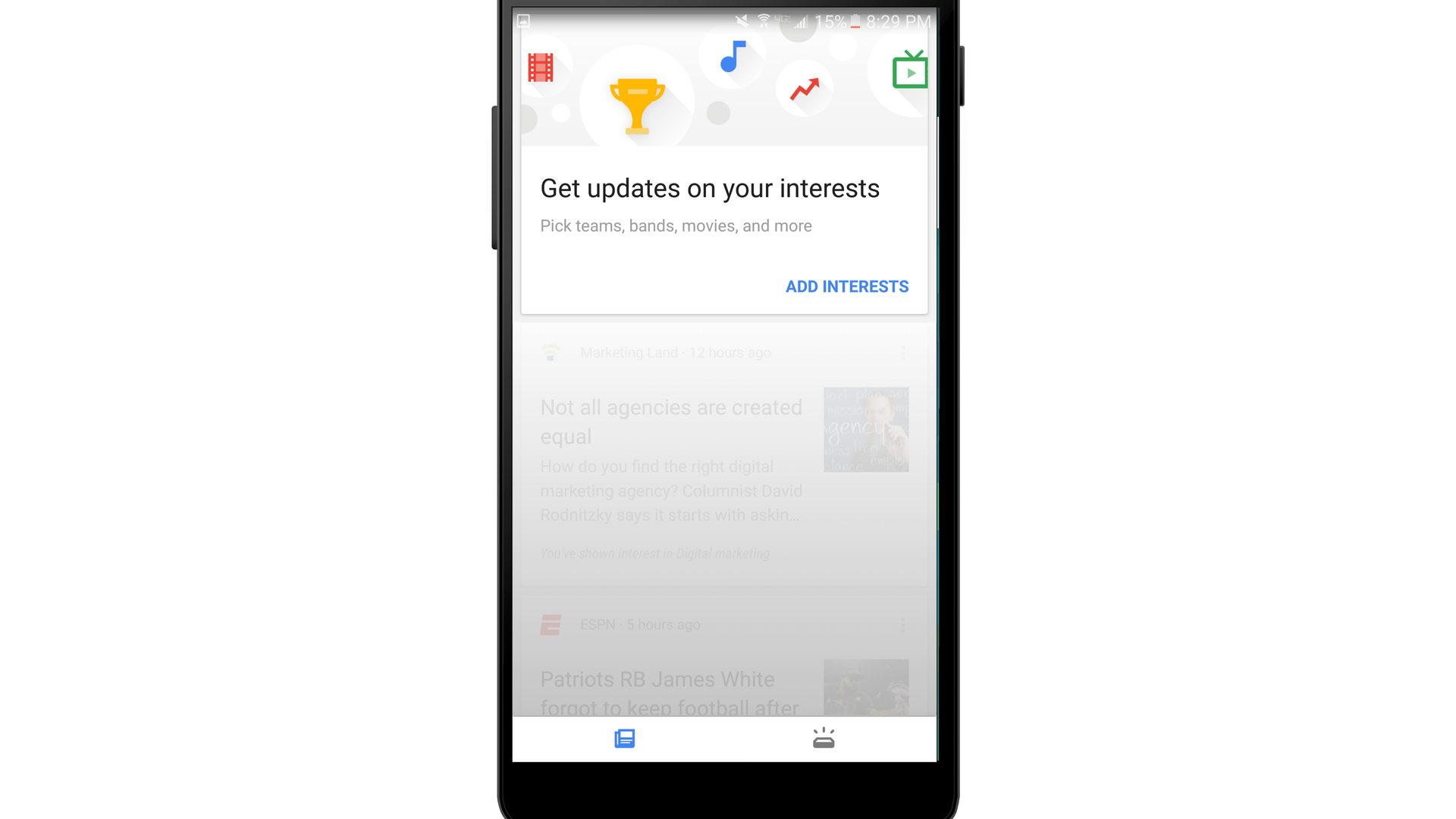
What now?
It’s all well and good to see examples of companies that are getting it right, but a step-by-step guide for mastering retention would be nice, wouldn’t it? We thought so, too. That’s why we put together this guide, “10 Ways to Make Your App a Retention Machine,” which explains best practices—from onboarding and collecting actionable customer data to adopting a multichannel outreach strategy—for many of the tactics theSkimm, Poncho, and Google Now have employed in the above campaigns. Get started today!
Releated Content
View the Blog
Braze vs Salesforce: Which customer engagement platform is right for your business?

Team Braze

Braze vs Adobe: Which customer engagement platform is right for your brand?

Team Braze
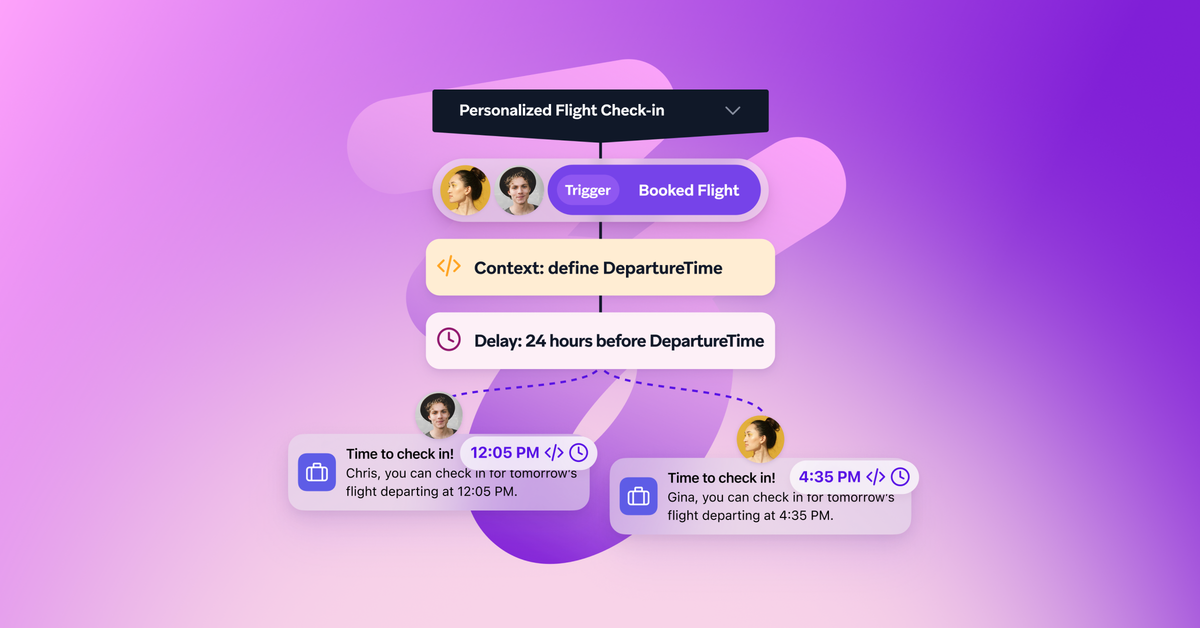
Every journey needs the right (Canvas) Context
